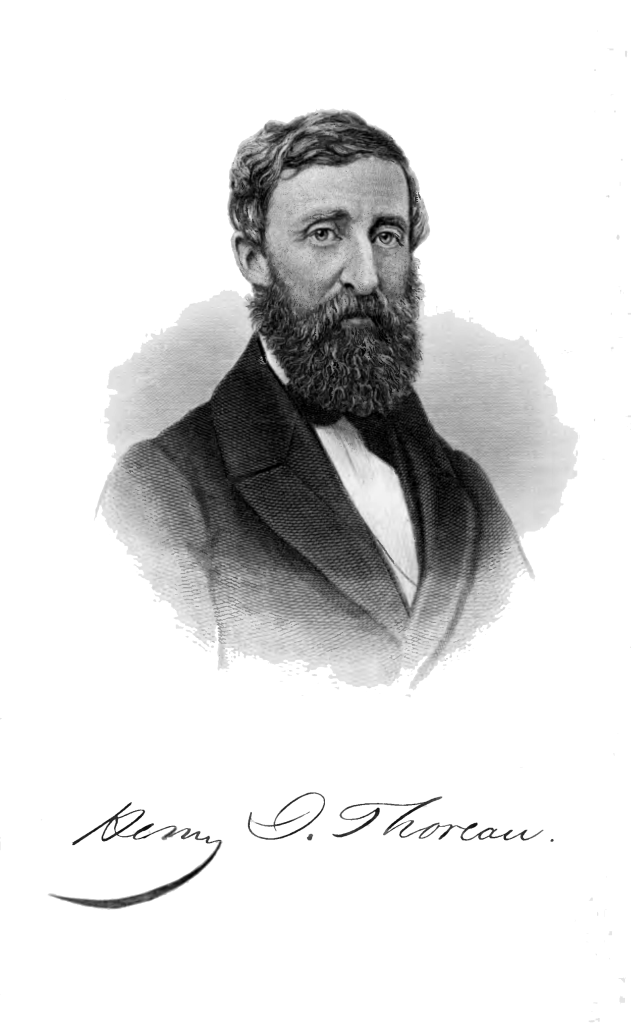
ESSENTIAL QUESTION
How did Henry David Thoreau define the role of the government?
CONTEXT
Henry David Thoreau (1817-1862) was born in Concord, Massachusetts, and graduated from Harvard in 1837. He had several jobs over the years, including teacher, pencil maker, poet, naturalist, speaker, and writer, and he kept a journal most of his life. He was friends with Ralph Waldo Emerson (1803-1882), and both were well-known Transcendentalists.
Thoreau built a cabin on the shores of Walden Pond in Massachusetts and lived there for two years (1845-1847). During that time he spent a night in jail for not paying his poll taxes, protesting the US government’s position on slavery and the Mexican-American War. One of his most well-known essays, “Civil Disobedience,” was written in 1849, and in 1854 his book Walden was published, based on his time on Walden Pond. Thoreau died at home in 1862 from tuberculosis.
This except is from “Civil Disobedience.”
TEXT
I heartily accept the motto-“That government is best which governs least;” and I should like to see it acted up to more rapidly and systematically. Carried out, it finally amounts to this, which also I believe,–“That government is best which governs not at all;” and when men are prepared for it, that will be the kind of government which they will have. Government is at best but an expedient; but most governments are usually, and all governments are sometimes, inexpedient…The government itself, which is only the mode which the people have chosen to execute their will, is equally liable to be abused and perverted before the people can act through it…
Governments show thus how successfully men can be imposed on, even impose on themselves, for their own advantage. It is excellent, we must all allow; yet this government never of itself furthered any enterprise, but by the alacrity with which it got out of its way. It does not keep the country free. It does not settle the West. It does not educate. The character inherent in the American people has done all that has been accomplished; and it would have done somewhat more, if the government had not sometimes got in its way …
But, to speak practically and as a citizen, unlike those who call themselves, no-government men, I ask for, not at once no government, but at once a better government. Let every man make known what kind of government would command his respect, and that will be one step toward obtaining it.
INQUIRY
- What is transcendentalism?
- Did Thoreau believe in a strong government? How do you know? Cite from the text.
- What did he mean by “government is at best but an expedient”? What is an expedient? Give an example either from Thoreau’s time or today.
- What did Thoreau mean by “when men are prepared for it”?
- How did Thoreau define government in the first paragraph? What is the job of government?
- According to Thoreau, how can government further “any enterprise”?
- In the second paragraph, according to Thoreau what does the government not do? What or who has accomplished these things?
- In the third paragraph, what type of government did Thoreau call for?
- What did Thoreau say is the first step toward obtaining a good government?
- In 1850 the US had only 31 states and several territories. Slavery, industrialization, and territorial expansion were major national issues. How might those conditions have influenced Thoreau’s thoughts about government?
ADDITIONAL RESOURCES
https://www.poetryfoundation.org/poets/henry-david-thoreau
https://www.nps.gov/places/walden-pond-in-the-walden-pond-state-reservation.htm